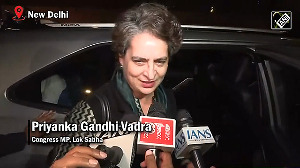Unilever said it was “working actively” to find a solution to a long-pending dispute on ecology contamination by its unit at Kodaikanal.
 After 15-odd years of alleged lack of action on toxic contamination at Tamil Nadu factory, music rap going viral gets global CEO’s promise in days for a solution.
After 15-odd years of alleged lack of action on toxic contamination at Tamil Nadu factory, music rap going viral gets global CEO’s promise in days for a solution.
The global chief executive of Unilever, the consumer goods giant, said on Thursday that the multinational company was “working actively” to find a solution to a long-pending dispute on ecology contamination by its unit at Kodaikanal, Tamil Nadu.
This was in response to the issue, some days earlier, of a ‘rap’ song by a Sofia Ashraf, 28, on the 14-year-long issue.
The video went viral on social media. In the six days since the video was uploaded, 1,765,210 views were reported and it has got wide attention in international media, including those in Europe and America.
The response on micro blogging site Twitter from Paul Polman, the Unilever CEO, was: “Working actively solution kodai #UnileverPollutes# for several years already. Determined to solve. Need others, too, and facts not false emotions.”
Reacting to the tweet, Nityanand Jayaraman of Chennai Solidarity Group, one of the activists on the issue, while welcoming Polman's saying he was determined to address the issues in Kodaikanal, said: “Unilever needs to shed its double standards with respect to environmental remediation for the matter to be resolved expeditiously”.
Unilever has been accused of putting pressure on the Tamil Nadu Pollution Control Board (TNPCB) to approve contaminated soil clean-up to a standard that is 25 times weaker than that in Britain, its global headquarters.
“We would like Indians to be treated at par with the British. Unilever should stop pressuring TNPCB to adopt a diluted standard and allow for a science-based transparent remediation,” said Jayaraman.
Earlier, Hindustan Unilever (HUL), the company’s Indian arm, said: “The safety of our employees is our number one priority. We closed down the factory and launched an investigation into this matter after it arose in 2001. While extensive studies on the health of our former workers and the Kodaikanal environment have not found any evidence of harm, we continue to take this issue very seriously and it’s one we are keen to see resolved. We have been working hard to find a fair and mutually satisfactory resolution at the suggestion of the Madras High Court and have had more than 10 meetings with our former employees’ representatives since 2014. However, achieving this will require all stakeholders – including employee representatives, NGOs and legal representatives – to get behind these efforts and agree on an outcome.”
Activities at the Kodaikanal site became a focus for attention in March 2001 when Greenpeace and others brought to HUL’s attention the fact that glass scrap containing mercury had been sold to a scrap dealer about three km from the factory, according to Unilever's website.
It was further said that investigation revealed 5.3 tonnes of mercury-tainted glass scrap (containing 0.15 per cent residual mercury, a very toxic substance) had been sold “in breach of our established procedures”.
The company said it had taken steps to decontaminate and dispose as scrap to industrial recyclers and was pursuing the matter with the relevant authorities.










